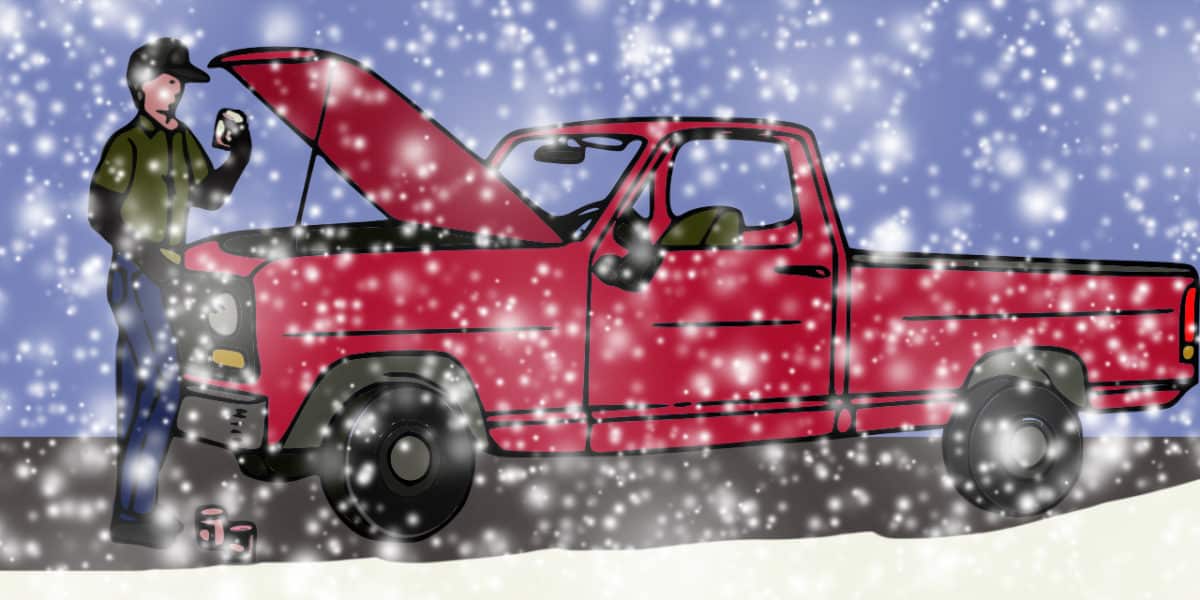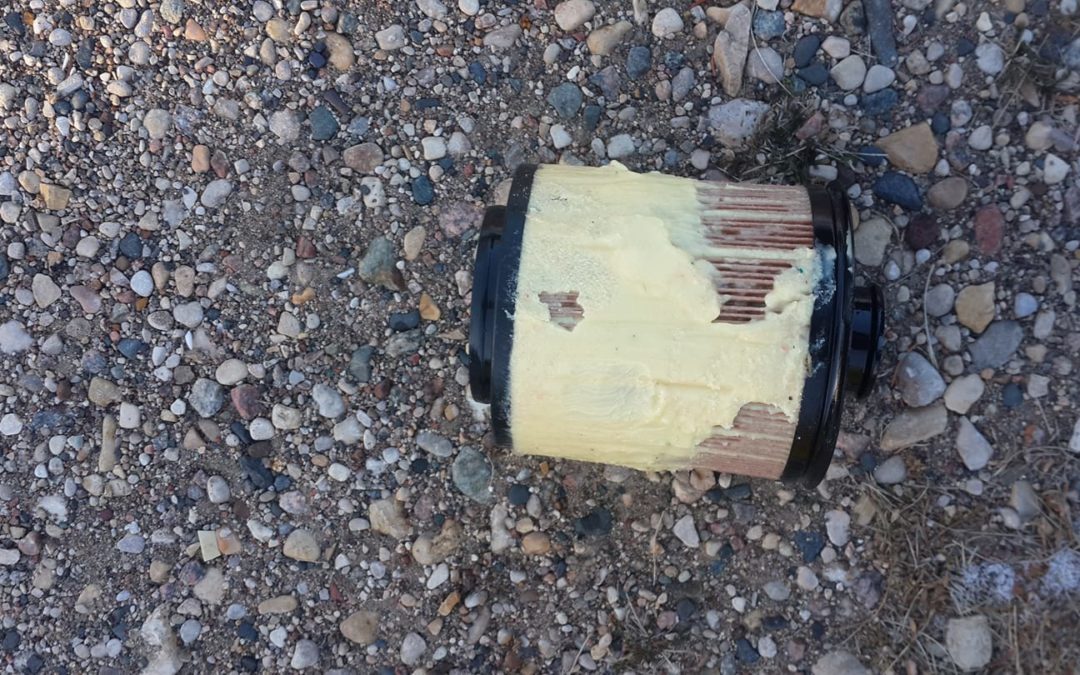What is diesel gelling?

Diesel gelling is when cold temperatures cause diesel fuel to turn from a liquid into a gel-like substance.
The diesel fuel solidifies into a waxy or gel-like substance. Fuel is no longer able to be pumped or filtered through the engine. There are 3 stages of the gelling process;
- Cloud point
- Pour point
- Gel point
Cloud point
Cloud point is the temperature at which the wax in diesel begins to solidify. This causes the fuel to have a cloudy appearance.
Pour point
Pour point is the temperature at which the diesel loses its flow characteristics.
Gel point
Gel point is the temperature at which the diesel freezes. Wax crystals form and the diesel can no longer pumped through fuel lines or filter.
What temperature does diesel gel at?
Diesel no#2 typically gels/freezes at 17.5 degrees Fahrenheit (-8.1 Celcius).
How do you know if your diesel is gelled?
- The vehicle won’t start
- Vehicle starts then dies
- Sluggish acceleration
- No fuel pressure (if you have a gauge that displays this)
How to stop a diesel from Gelling?

Here are some tips to avoid a diesel vehicle from gelling.
Plug in your truck or vehicle
To avoid a diesel from gelling, you can plug the vehicle in using an engine block heater. If you don’t have one already fitted to your truck, these can be fitted at your local dealership.
Use winterized diesel.
Some gas stations will have winterized fuel. It may not be available at every pump so call ahead to check or ask at the fuel desk first. They may have a blend available which can significantly lower the gelling temperature.
Use Anti-Gel Additives
Use non-alcohol based additives, called cold flow improvers, or anti-gel preventatives.
Keep diesel tank as full as possible
Keep more than a half a tank of fuel in the vehicle. This may be tricky in rural locations if you on a long haul in places like Wyoming. Having more fuel in the tank reduces the opportunity for water/condensation to collect and freeze. This is turn will help avoid diesel gelling.
Store the vehicle inside
Keep your vehicle in the garage (heated is even better if you’re lucky enough to have one!). Nonetheless keeping the vehicle inside could be just enough of a temperature difference to avoid gelling.

What to do if your truck has diesel gelling?
Drain the water separators/replace fuel filter
If your diesel is gelled, take your vehicle to a warm place ( or inside) and let it warm up. This way the wax crystals can melt back to a liquid form. Jamie Osborne, master diesel technician at Fremont Motors Casper, recommends inspecting the fuel filter to look for wax, gel-like particles. Then if necessary, drain the water separators and replace the fuel filter.
Be careful inspecting, wear gloves
Be sure to wear gloves when inspecting diesel components as bacteria can grow in diesel. Commonly called diesel bug or diesel algae.
On a side note, this can also cause starting problems with trucks. According to Fuel and Friction, “…microbial growth in fuel is usually described as near to the appearance of chocolate mousse.” It grows within any water that may be in fuel/tank.
To avoid this, use a fuel from somewhere the fuel is being moved constantly instead of sitting, gathering water.
How to ungel diesel in an emergency
You can use a De-Gel product to ungel a diesel. Power Service Diesel 9-1-1 is a product that re-liquefies gelled diesel. It also de-ices frozen fuel filters.
It does not prevent gelling and should not be used on a regular basis but only in emergencies.
To reliquify the fuel, follow the directions of the De-Gel product.
If the fuel filter is clogged, this will require removing the filter.
Note that a De-Gel product is different from an Anti-Gel product. If your diesel is already gelled up, an Anti-gel will not work.

If you’d like to research more about diesel fuel additives, check out;
An experimental study of diesel fuel cloud and pour point reduction using different additives
CHANGING DIESEL LOW TEMPERATURE PROPERTIES USING ADDITIVES
You might also be interested in: What is Diesel Exhaust Fluid (DEF)

It’s also worth mentioning that if you suspect water in your fuel tank at all, get a testing kit to check it for microbial contamination as otherwise, you could potentially damage your tanks.
Thanks for the gelling tips.